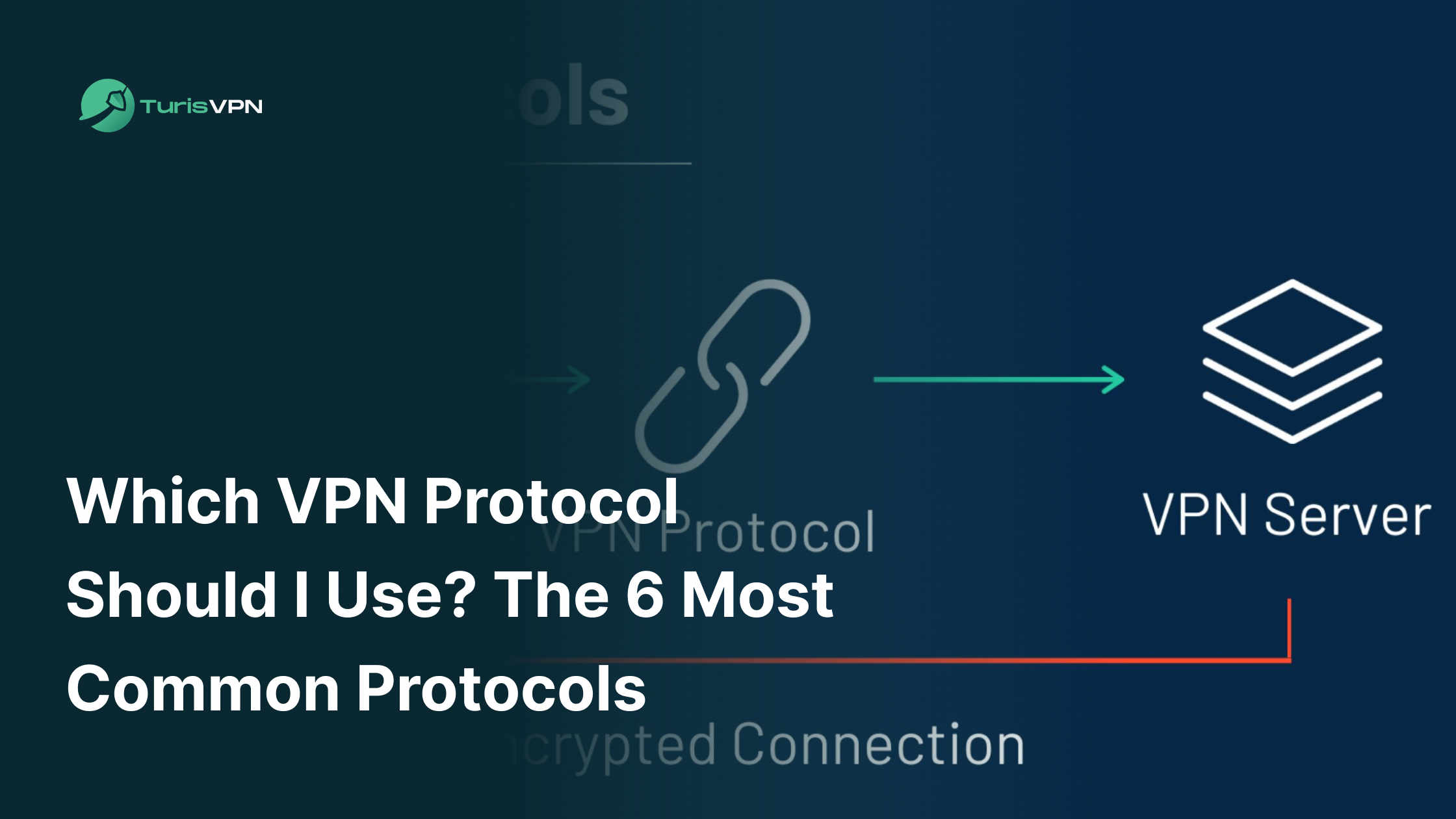With so many VPN protocols available, choosing the right one can be overwhelming. Each protocol has its strengths and weaknesses, so it’s essential to understand what they offer.
This blog will break down six popular VPN protocols, reviewing their security, speed, compatibility, ability to bypass firewalls, whether they’re open-source or proprietary, and how easy they are to set up.
By the end, you’ll be at ease to answer the question, “Which VPN protocol should I use?”
What are VPN Protocols?
A VPN routes users’ internet traffic through encrypted tunnels, helping to establish a secure internet connection. The VPN protocol is a set of rules that dictate how these tunnels are formed and how data is transmitted.
The protocol determines the methods of encryption, authentication, and data encapsulation used while transmitting data across servers. Each protocol typically focuses on a specific combination of features, such as compatibility and high speed, or robust encryption and network stability.
An encrypted connection ensures your online activities are protected from potential threats like hackers, government surveillance, or data breaches. VPN protocols vary in terms of security, speed, and compatibility, making it important to choose the right one for your needs. The explanation below will help you decide which VPN protocol to use.
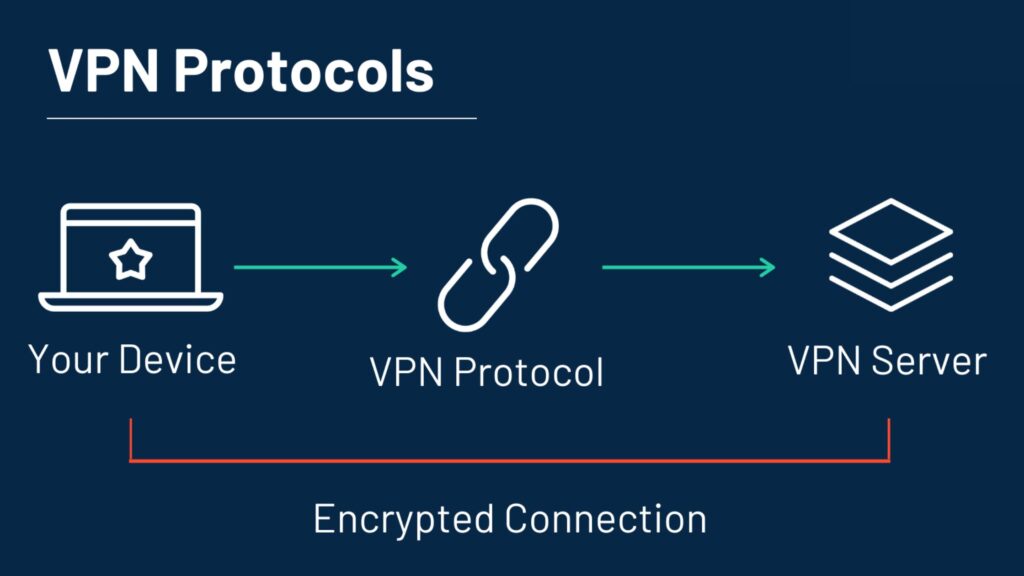
How do VPN protocols work?
VPN protocols perform two fundamental functions: authentication and encryption.
- Encryption: When you connect to a VPN server, the chosen protocol activates and employs robust encryption methods, such as SSL/TLS, to render your data unreadable to unauthorized entities.
- Establishing a Secure Tunnel: Once encrypted, your data is encapsulated within a secure tunnel—a virtual conduit that stretches between your device and the VPN server. This tunnel protects your data from potential security threats as it is transmitted.
- Authentication: The VPN protocol uses authentication mechanisms to ensure that your device is connected to a trusted and authentic VPN server.
- Data Routing and Remote Access: As your encrypted data travels through the secure tunnel, it reaches the VPN server. The server acts as an intermediary, routing your data to its intended destination and masking your IP address.
- Bidirectional Communication: The VPN protocol facilitates seamless bidirectional communication, allowing data to flow securely between your device and the remote server. Whether you’re uploading files or browsing online, the VPN protocol ensures your data is transmitted securely.

Which VPN Protocol Should I Use? Top 6 most common VPN protocols
There are many VPN protocols on the market, each with its own pros and cons. We have identified the six most common VPN protocols based on their compatibility, security, speed, and adoption.
WireGuard
WireGuard, the newest and fastest tunneling protocol in the VPN industry, reduces latency by up to 60% compared to OpenVPN and IPsec. Designed to be simpler and more efficient, WireGuard boasts a minimal codebase of approximately 4,000 lines. It employs advanced cryptographic techniques, including Curve25519 for key exchange, ChaCha20 for encryption, and Poly1305 for data authentication.
- Speed: WireGuard typically reduces latency by up to 60% and achieves throughput rates 2-3 times higher than OpenVPN and IPsec.
- Compatibility: WireGuard supports cross-platform functionality, available on Linux, Windows, macOS, iOS, Android, and various Unix-like systems.
- Security: By utilizing cutting-edge cryptographic methods, WireGuard ensures robust security and reduces the risk of certain types of attacks.
- Adoption: As an open-source project, WireGuard benefits from a growing community of contributors and regular updates, ensuring continuous improvement and security enhancements.
TurisVPN uses the fast and secure WireGuard protocol, giving you lightning-fast speeds and rock-solid security. With TurisVPN, you can enjoy smooth streaming, gaming, or browsing. Our goal is to use the latest VPN technology, so you always have the best protection and performance.
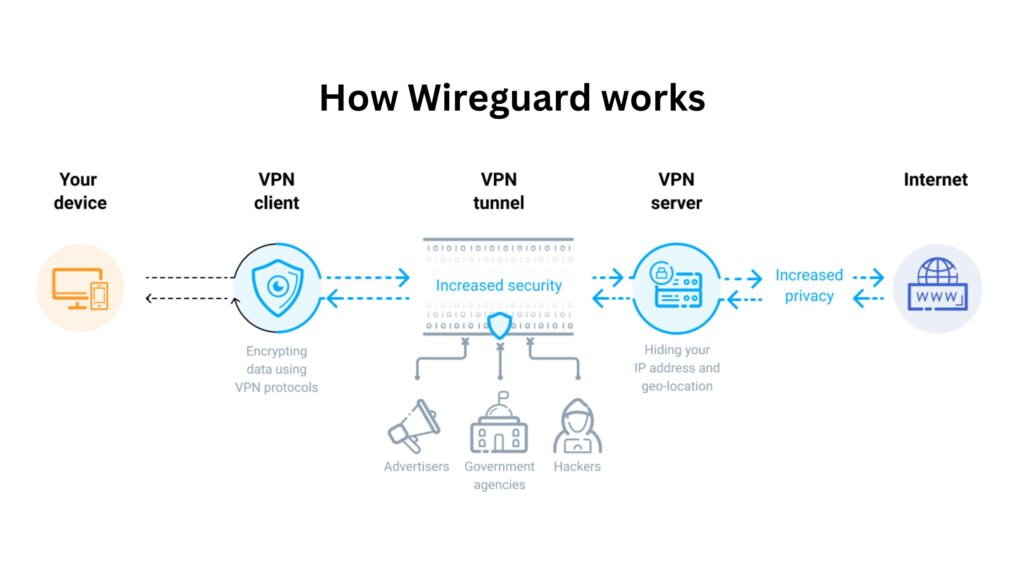
OpenVPN
OpenVPN has long been a trusted standard in the VPN industry, known for its robust security features and extensive configurability. With a comprehensive codebase, OpenVPN supports a wide range of encryption algorithms and offers advanced options for creating secure and private network connections.
- Speed: While OpenVPN may not match the speed of newer protocols like WireGuard, it provides reliable performance with comprehensive options for optimizing throughput and latency.
- Compatibility: OpenVPN is cross-platform, available on Windows, macOS, Linux, iOS, and Android, as well as various routers and appliances. This wide compatibility makes it suitable for diverse network environments.
- Security: OpenVPN employs a variety of cryptographic techniques, including AES-256 for encryption, RSA for key exchange, and SHA256 for data authentication, ensuring high levels of security and data integrity.
- Adoption: As an open-source project, OpenVPN benefits from a large community of contributors and regular updates. Its extensive documentation and widespread use in enterprise environments reflect its stability and reliability.
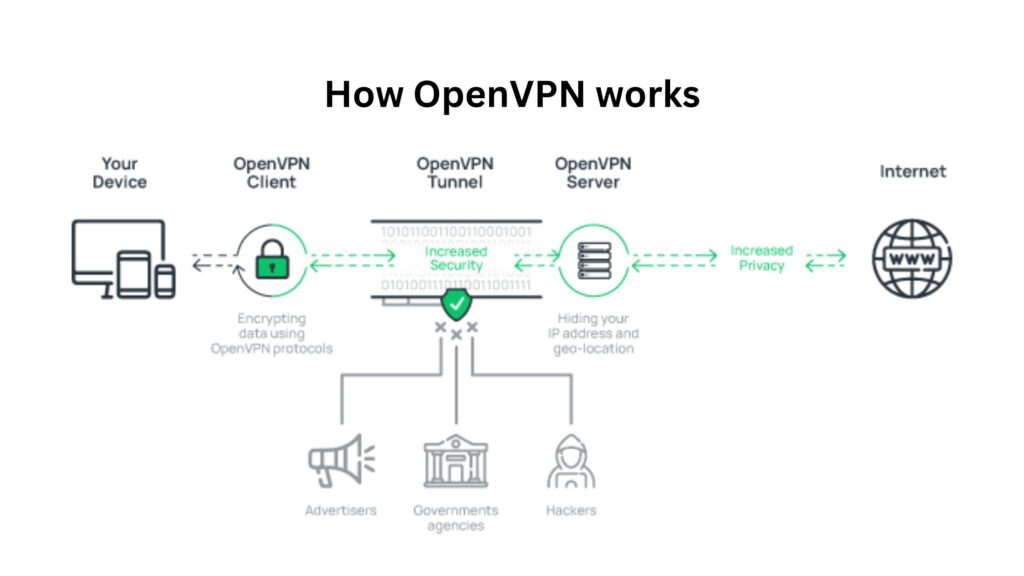
L2TP/IPsec
L2TP/IPsec is a popular VPN protocol that combines the Layer 2 Tunneling Protocol (L2TP) with the security of IPsec. This combination provides a secure and versatile solution for creating VPN connections, known for its strong encryption and broad compatibility.
- Speed: L2TP/IPsec offers good performance, though it may not be as fast as newer protocols like WireGuard. Its dual-layer approach can introduce some extra overhead, but it is generally sufficient for most users.
- Compatibility: L2TP/IPsec is widely supported across many devices and operating systems, including Windows, macOS, Linux, iOS, and Android. This broad compatibility makes it a reliable choice for various network environments.
- Security: The protocol uses IPsec for encryption, which means it secures your data with strong protection. It also ensures that your data is both authentic and unchanged during transmission.
- Adoption: L2TP/IPsec is widely adopted and supported by many VPN providers and networking devices.
PPTP
PPTP (Point-to-Point Tunneling Protocol) is one of the oldest and most widely-used VPN protocols. It is known for its ease of setup and broad compatibility, making it a popular choice for simple and fast VPN connections.
- Speed: PPTP is known for its fast performance, making it a good choice for applications where speed is crucial, such as streaming. Its lightweight nature allows for quick data transmission.
- Compatibility: PPTP is supported on a wide range of devices and operating systems, including Windows, macOS, Linux, iOS, and Android. This extensive compatibility ensures it can be easily used across various platforms.
- Security: While PPTP provides basic encryption, it is not as secure as more modern protocols like L2TP/IPsec or WireGuard. It uses older encryption methods that have known vulnerabilities, making it less suitable for highly sensitive data.
- Adoption: Due to its simplicity and ease of use, PPTP has been widely adopted and remains available on many devices and VPN services.
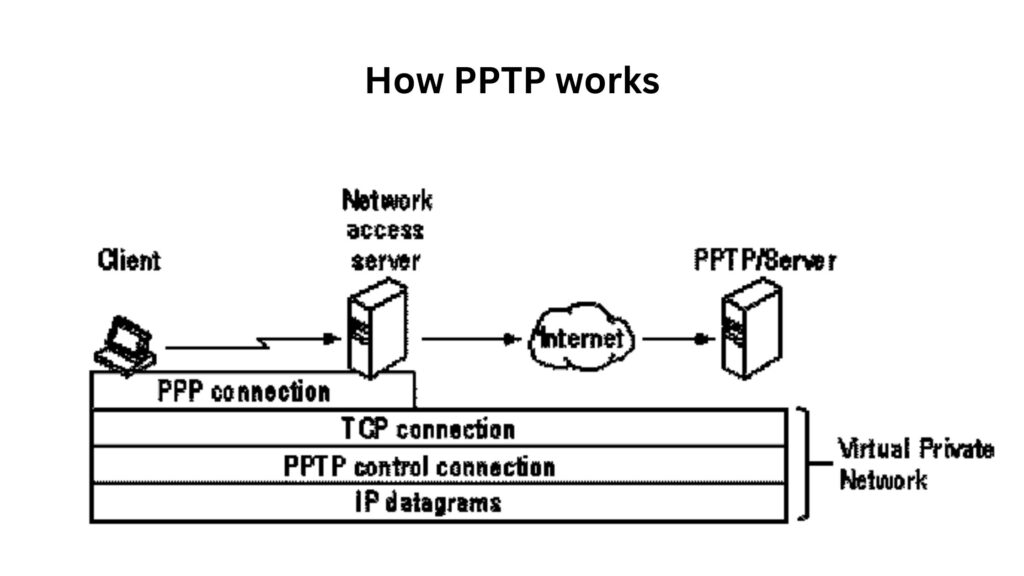
SSTP
SSTP (Secure Socket Tunneling Protocol) is a VPN protocol developed by Microsoft, known for its strong security and seamless integration with Windows operating systems. It offers a good balance of speed, security, and compatibility, making it a reliable choice for VPN connections.
- Speed: SSTP provides solid performance with relatively low latency and good data transfer speeds. While it may not be as fast as the newest protocols like WireGuard, it is efficient and reliable for most applications.
- Compatibility: SSTP is natively supported on Windows operating systems, from Windows Vista onwards. It can also be configured on Linux and macOS with additional setup, although its primary strength lies in its seamless Windows integration.
- Security: SSTP uses SSL/TLS encryption, the same technology that secures HTTPS websites. This provides robust security and makes it difficult for anyone to intercept or tamper with the data being transmitted.
- Adoption: SSTP is widely adopted in environments where Windows is the predominant operating system.
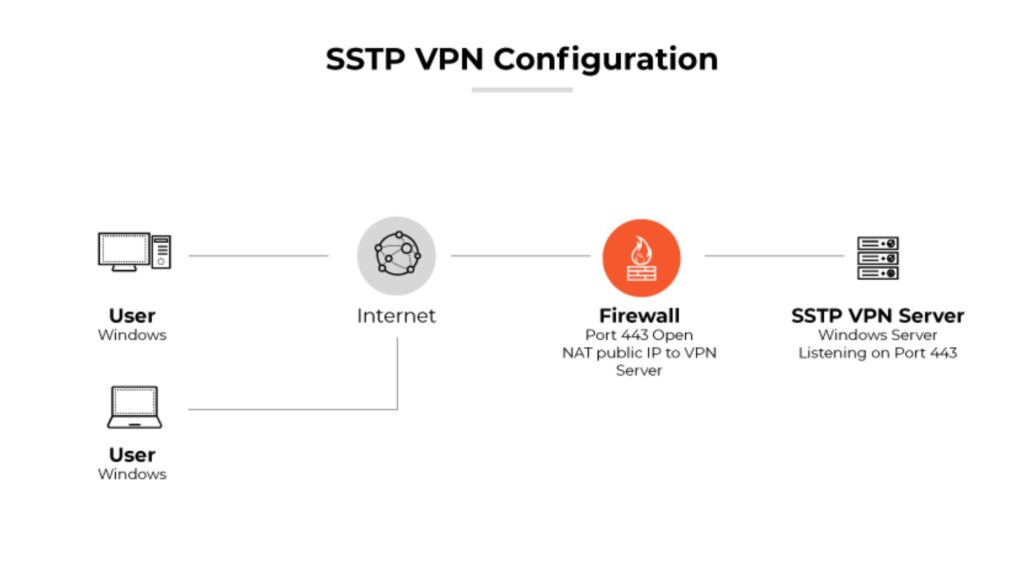
IKEv2
IKEv2 (Internet Key Exchange version 2) is a modern VPN protocol known for its speed, security, and stability. Developed by Microsoft and Cisco, IKEv2 is highly regarded for its ability to maintain a stable VPN connection, even when switching between networks.
- Speed: IKEv2 is optimized for high-speed performance, offering quick data transmission and low latency. It is particularly effective on mobile devices, where it can seamlessly handle network changes without dropping the connection.
- Compatibility: IKEv2 is supported on a wide range of devices and operating systems, including Windows, macOS, iOS, Android, and various Unix-like systems. Its strong support for mobile devices makes it a popular choice for users on the go.
- Security: IKEv2 uses robust encryption methods, such as AES-256, ensuring high levels of security and data integrity. Its ability to quickly re-establish a secure connection after interruptions makes it particularly resilient.
- Adoption: IKEv2 is widely adopted due to its reliability and strong performance on mobile devices. It is supported by many VPN providers and is a favored protocol for users who need a dependable and secure VPN connection.
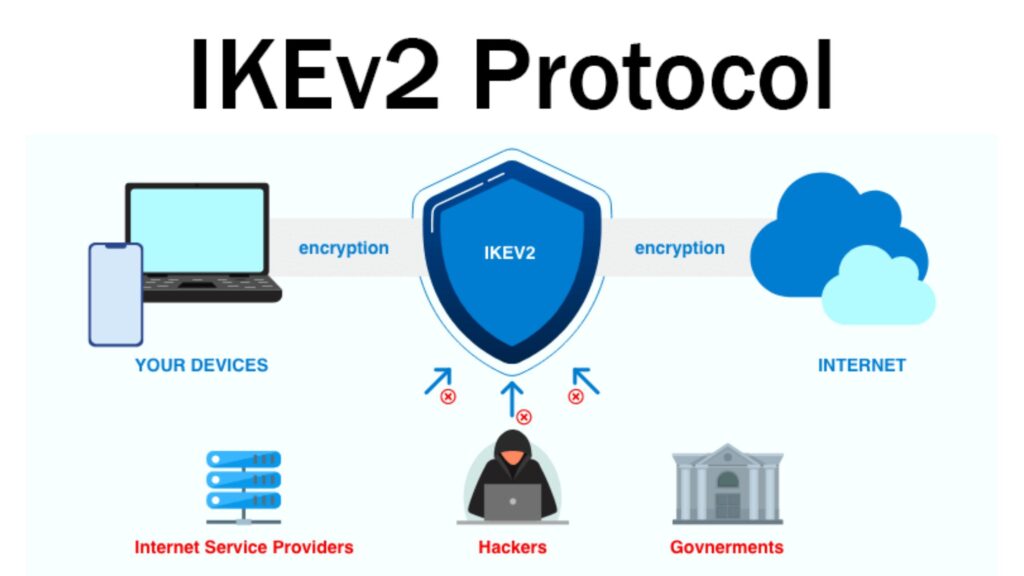
Summary Comparison Table of VPN Protocols
| VPN Protocol | Speed | Compatibility | Security | Adoption | Best For |
| WireGuard | Fastest: 2-3x faster than OpenVPN/IPsec. | Cross-platform: Linux, Windows, macOS, iOS, Android. | Cutting-edge cryptography. | Open-source, rapidly growing. | Speed, modern technology. |
| OpenVPN | Stable, slower than WireGuard. | Widest: Windows, macOS, Linux, routers, mobile. | AES-256, RSA, SHA256 encryption. | Widely used in enterprises. | Compatibility, enterprise use. |
| L2TP/IPsec | Good but slower due to dual-layer encryption. | Broad: Windows, macOS, Linux, iOS, Android. | Strong encryption via IPsec. | Reliable for general use. | Balanced security and compatibility. |
| PPTP | Fast but lightweight. | Nearly universal. | Outdated, basic encryption. | Easy setup, widely available. | Speed for low-security tasks (e.g., streaming). |
| SSTP | Reliable with low latency. | Best on Windows; requires setup on macOS/Linux. | SSL/TLS encryption. | Common in Windows environments. | Windows-centric setups. |
| IKEv2 | Fast, stable on mobile. | Strong for mobile and major OS. | Resilient AES-256 encryption. | Trusted for mobile users. | Mobile users, stable connections. |
Which VPN Protocol Is The Best? Check With 6 Important Factors
Choosing the right VPN protocol depends on various factors, including security, speed, compatibility, ability to bypass firewalls, whether it is open-source or proprietary, and ease of configuration. Here’s a guide to help you decide which VPN protocol to use based on these six criteria.
Security
OpenVPN and IKEv2 are excellent choices for security. OpenVPN employs robust encryption methods like AES-256 and is highly customizable, making it one of the most secure protocols available. IKEv2 also uses strong encryption (AES-256) and is particularly good at maintaining a secure connection even when switching networks, making it highly resilient against potential threats.
Speed
WireGuard and IKEv2 are known for their high-speed performance. WireGuard is designed to be extremely fast, reducing latency and achieving higher throughput rates compared to older protocols. IKEv2 is optimized for fast performance and low latency, especially on mobile devices, making it an excellent choice for users who need quick data transmission.
Compatibility
OpenVPN and IKEv2 stand out for their broad compatibility. OpenVPN works on almost all devices and operating systems, providing extensive flexibility. IKEv2 supports a wide range of platforms, including Windows, macOS, iOS, Android, and various Unix-like systems, making it highly versatile, particularly for mobile users.
Bypassing Firewalls and Restrictions
OpenVPN and SSTP are particularly effective at bypassing firewalls and restrictions. OpenVPN, especially when configured to use TCP port 443, can easily circumvent most firewalls due to its ability to mimic HTTPS traffic. SSTP, integrated seamlessly with Windows, is also highly effective at getting through firewalls, making it a reliable choice for users in restrictive environments.
Open Source and Proprietary Protocols
OpenVPN and WireGuard are both open-source protocols, which means their code is available for public scrutiny, ensuring transparency and community-driven improvements. OpenVPN has been extensively audited and is highly trusted in the VPN community. WireGuard, though newer, has quickly gained popularity due to its simplicity and efficiency, with the open-source nature allowing for rapid advancements and security enhancements.
Easy Configuration
PPTP and SSTP are known for their ease of configuration. PPTP is one of the simplest protocols to set up, making it a popular choice for beginners, despite its lower security. SSTP, developed by Microsoft, is seamlessly integrated into Windows, providing a straightforward setup process for users within the Windows ecosystem.
Our last words
Choosing the right VPN protocol is crucial for protecting your online privacy. By considering factors like security, speed, compatibility, firewall bypassing capabilities, whether the protocol is open-source or proprietary, and ease of setup, you can find the best fit for your needs.
